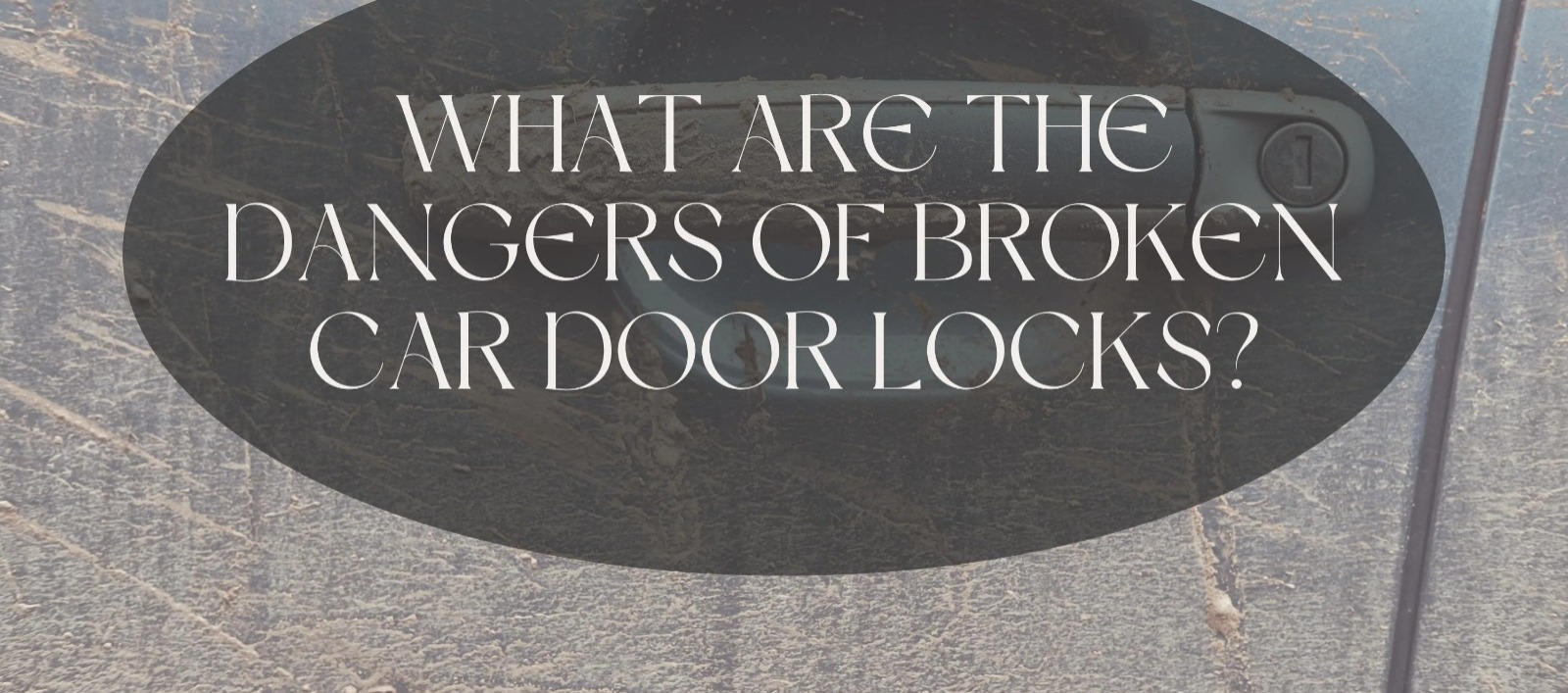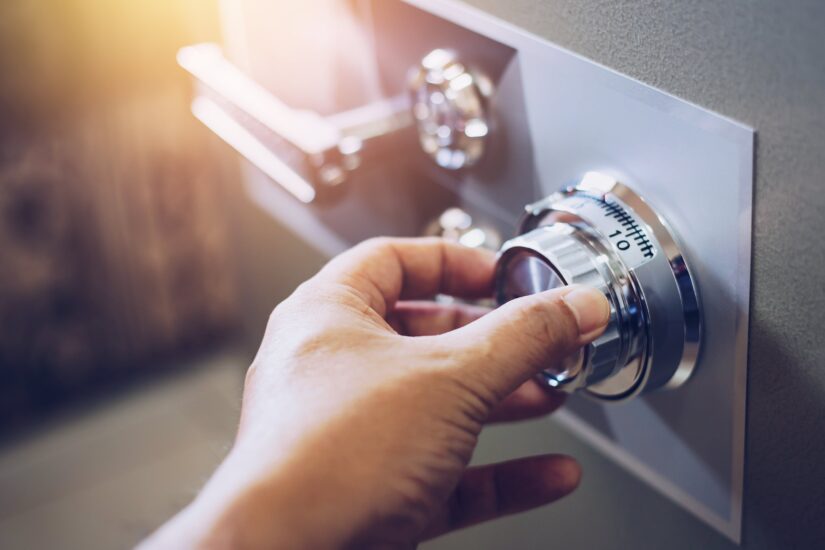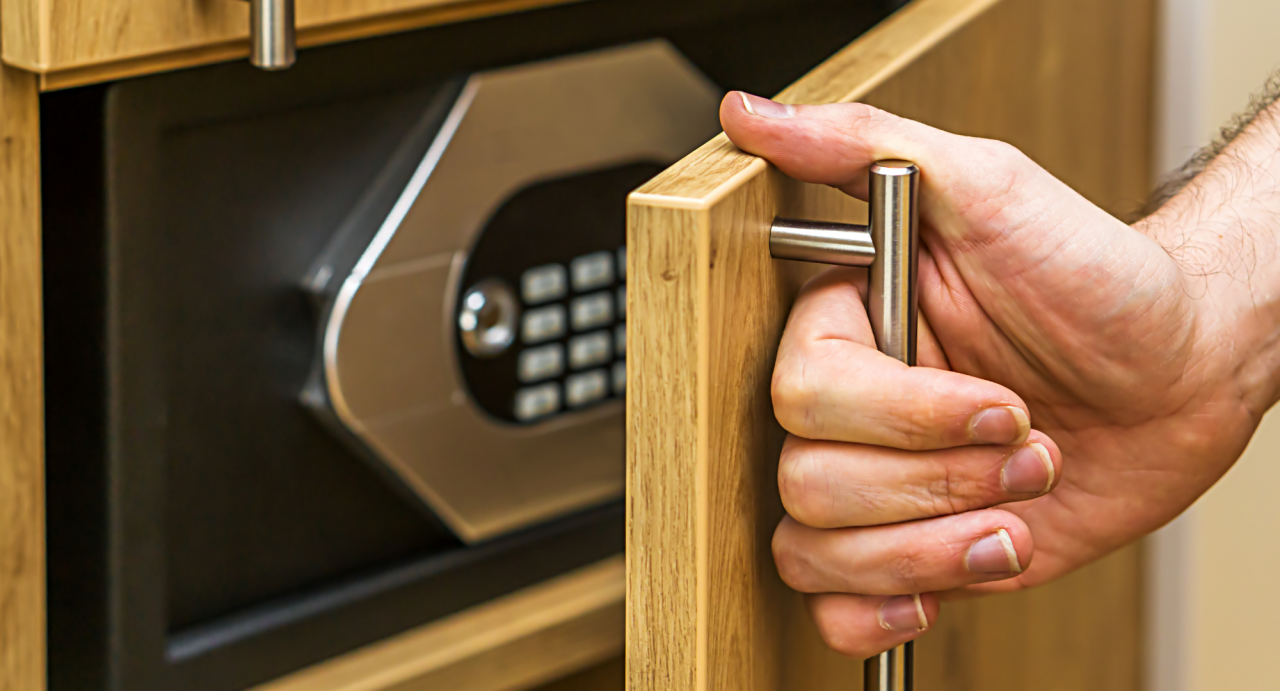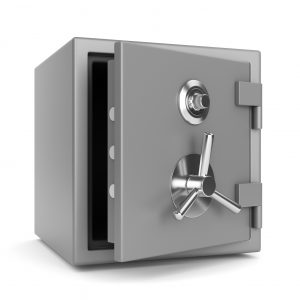As a proud car owner, your vehicle is not just a mode of transport, but a cherished possession. Ensuring the security of your car door locks is paramount to protect it from potential theft and safeguard your peace of mind. Broken locks expose your vehicle to the risk of unauthorized intrusion, theft, and a host of other problems. In this comprehensive guide, we will delve into the perils of broken car door locks, provide insights into prevention, and offer solutions to keep your cherished ride safe and secure.
The Vital Role of Car Door Locks
Car door locks aren’t just a feature; they are the sentinels guarding your vehicle against a myriad of threats. They serve as the primary defense against theft, thwarting potential criminals from accessing your vehicle’s interior and valuables. Moreover, these locks play a critical role in passenger safety, ensuring doors remain tightly secured during journeys, bolstering structural integrity, and minimizing the risk of passengers being ejected during accidents or sudden stops.
However, when your car door locks are compromised or broken, the risks become tangible. They render your vehicle susceptible to theft, compromising safety, and leading to inconvenience and disruption of daily routines. To maintain peace of mind, it’s essential to conduct regular inspections, invest in high-quality locks, and address any issues promptly.
Detecting Signs of Broken Car Door Locks
Recognizing the signs of broken car door locks is the first step in securing your vehicle. Identifying these issues early can mitigate security risks and prevent inconvenient situations. Keep an eye out for these common indicators:
1. Difficulties in Locking or Unlocking
Struggling to lock or unlock your car with your key fob or key is a red flag. If you notice resistance or a need for excessive force, your locks may be compromised.
2. Stiffness or Stickiness
When turning the key feels stiff or sticky, it could indicate internal problems with the lock mechanism. Ignoring this sign may lead to further complications.
3. Doors Not Fully Latching
If your doors fail to latch securely, even when you push or pull them closed, your car door locks may be at fault. This not only poses a security risk but also jeopardizes passenger safety.
4. Key Issues
Getting your key stuck or experiencing a broken key within the lock is a clear indication of lock trouble. It’s essential to address this promptly to prevent additional problems.
5. Unusual Noises or Vibrations
Unusual sounds or vibrations during lock operation may signify internal damage. Ignoring these signs can lead to costly repairs or theft.
When you notice any of these symptoms, don’t hesitate. Seek the expertise of a professional locksmith or an automotive technician. They can diagnose and rectify the issue, ensuring your vehicle remains secure.
Broken Car Door Locks: A Gateway to Theft and Break-Ins
Broken car door locks expose your vehicle to serious threats. Among the gravest perils is the ease with which thieves can gain access to your car. Research shows that a significant number of car thefts and break-ins occur due to compromised locks. When thieves can manipulate or force open a faulty lock, your vehicle and its contents become vulnerable. This can lead to financial losses, damage to your car’s interior, and the loss of important items.
Insurance companies also take vehicle security seriously, and having faulty locks can impact your coverage. Regular inspection and maintenance of your locks can prevent potential theft and identify any issues before they escalate. By staying vigilant and taking proactive measures, you can protect your vehicle from potential threats.
The Hazards of Driving with Broken Car Door Locks
Driving with broken car door locks endangers you and your vehicle. It makes it easier for unauthorized individuals to enter your car, potentially leading to theft or vandalism. Skilled car thieves can exploit this vulnerability, resulting in significant financial losses and emotional distress.
Moreover, dysfunctional car door locks can compromise your personal safety in emergencies. It can impede your ability to exit the vehicle quickly, which can be especially perilous if you find yourself trapped inside or need to evacuate urgently. Unauthorized access while driving can also threaten your security and privacy, increasing the risk of theft during a carjacking scenario.
Furthermore, broken car door locks can disrupt the functionality of your vehicle’s central locking system, making it difficult to lock or unlock all doors simultaneously. This can be frustrating and inconvenient, particularly when you need to secure your vehicle quickly. To mitigate these risks, it’s crucial to address any issues with your car door locks immediately. Consult a professional locksmith or a trusted automotive technician to assess and repair faulty locks. By ensuring that your car door locks are in proper working order, you can protect yourself, your passengers, and your vehicle from potential threats and maintain peace of mind while on the road.
Preventing Car Door Lock Issues
Preventing car door lock issues is crucial to protect your ride from potential risks. Fortunately, there are several simple yet effective steps you can take to minimize the chances of encountering problems with your car door locks.
1. Regular Maintenance and Inspections
The key to preventing car door lock issues is regular maintenance. Schedule periodic inspections with a trusted mechanic who can assess the condition of your locks and perform any necessary repairs or adjustments. This proactive approach will help identify and address potential problems before they escalate.
2. Lubrication
Proper lubrication is essential for the smooth operation of your car door locks. Over time, dirt, grime, and debris can accumulate, causing the locks to become stiff or difficult to turn. Apply a recommended lubricant to the lock mechanism to ensure it remains well-lubricated and functions properly.
3. Gentle Handling
Handle your car door locks with care to prevent unnecessary strain or damage. Avoid forcing the key into the lock or using excessive force when turning it. If you encounter resistance, take a moment to assess the situation and try again gently. Being mindful of your actions can go a long way in preventing lock issues.
4. Avoid Exposure to Extreme Conditions
Extreme weather conditions, such as excessive heat or cold, can take a toll on your car door locks. Whenever possible, park your vehicle in a covered area or use a car cover to shield it from direct exposure. This can help prevent damage to the locks and extend their lifespan.
5. Key Maintenance
Regularly inspect and clean your car keys to ensure they are in good condition. Over time, keys can become worn or bent, which can cause difficulties when inserting or turning them in the locks. If you notice any signs of wear or damage, consider getting a new key made to prevent potential lock issues.
By following these preventive measures, you can significantly reduce the risk of encountering car door lock issues. Remember, proactive maintenance and gentle handling are key to keeping your car’s locks in top-notch condition and safeguarding your ride from potential security risks.
Regular Maintenance and Inspections
Regular maintenance and inspections are crucial to protect your vehicle and understand the risks of broken car door locks. Car door locks are essential for your car’s security as they prevent unauthorized individuals from accessing it. To ensure proper working condition, you should follow a regular maintenance schedule, including inspecting for any signs of wear or damage, lubricating the locks’ mechanisms, and having them inspected by a professional. This proactive approach can help you address any potential issues before they escalate into significant
problems.
Quality Matters: Invest in High-Grade Car Door Locks
When it comes to car door locks, not all locks are created equal. Investing in high-quality locks can make a substantial difference in the security of your vehicle. Premium car door locks are designed to resist tampering and offer enhanced protection against theft and break-ins. While they might be a bit more expensive, the added peace of mind and security they provide are well worth the investment.
Quality car door locks are typically made from durable materials, feature advanced locking mechanisms, and are designed to withstand wear and tear. They also often come with warranties and are backed by reputable manufacturers. When you decide to upgrade your car’s door locks, consult with a professional locksmith or automotive security expert who can recommend the best options based on your vehicle’s make and model.
Additionally, some high-quality car door locks incorporate modern technologies, such as keyless entry systems or biometric locks. These features can offer added convenience and security, ensuring that your vehicle remains safe from theft and break-ins.
Vehicle Safety Features and Modern Locking Systems
Modern vehicles come equipped with advanced safety features and locking systems designed to enhance security and ease of use. These features often include keyless entry, remote locking, and even biometric authentication. Understanding and utilizing these technologies can significantly improve the security of your car and make your daily routine more convenient.
Keyless Entry Systems: Many modern cars are equipped with keyless entry systems that allow you to unlock and start your vehicle without removing the key fob from your pocket or bag. These systems often rely on wireless communication between the key fob and the car, and they can enhance convenience while maintaining security. Ensure you understand how to use this system effectively and keep your key fob’s battery in good condition.
Remote Locking: Remote locking systems enable you to lock or unlock your car from a distance using a key fob. They also often include panic buttons that can trigger the car’s alarm system in emergency situations. Familiarize yourself with your vehicle’s remote locking features and use them to secure your car from a distance.
Biometric Locks: Some high-end vehicles now incorporate biometric locking systems. These may include fingerprint recognition or other biometric authentication methods. While not yet common in all vehicles, they offer advanced security by ensuring that only authorized individuals can access your car.
Security Alarms: Modern vehicles are equipped with security alarm systems that can deter thieves and alert you to potential break-ins. Ensure your car’s alarm system is active and understand how it operates. If your car doesn’t have an alarm system, consider having one installed by a professional.
In addition to understanding these features, it’s crucial to stay informed about the latest security technologies and trends in the automotive industry. As technology evolves, new security measures and locking systems are developed to combat emerging threats. Staying up-to-date with these advancements can help you make informed decisions regarding your vehicle’s security.
Car Theft Statistics: The Alarming Reality
Understanding the prevalence of car theft can underscore the importance of addressing broken car door locks and implementing security measures. Let’s take a closer look at some car theft statistics to illustrate the severity of the issue:
- In the United States, a motor vehicle was stolen every 40.9 seconds in 2020, according to the FBI’s Uniform Crime Reporting (UCR) Program.
- Car thefts cost vehicle owners and insurance companies approximately $6.4 billion in 2019, as reported by the Insurance Information Institute (III).
- While vehicle theft rates vary by location, some cities consistently experience higher rates. For example, Albuquerque, New Mexico, had the highest vehicle theft rate in the U.S. in 2019, with 1,104.8 thefts per 100,000 people, according to the III.
- Commonly stolen vehicles include sedans, SUVs, and pickup trucks. Thieves often target vehicles with valuable parts or those that are in high demand on the black market.
These statistics emphasize the importance of vehicle security. Broken car door locks can make your car an easy target for thieves, resulting in financial losses and emotional distress. Taking proactive measures to address lock issues, invest in high-quality locks, and stay informed about the latest security technologies can significantly reduce the risk of car theft and break-ins.
Insurance and Car Door Locks: The Connection
Car insurance plays a crucial role in providing financial protection in case of theft or damage to your vehicle. However, your car’s security features, including its door locks, can impact your insurance coverage and premiums.
Insurance companies assess the risk associated with ins
suring a vehicle, and the presence of high-quality, well-maintained door locks can reduce that risk. This, in turn, may lead to more favorable insurance rates.
Conversely, if your car has compromised or poorly maintained door locks, insurance companies may view it as a higher risk for theft. This can result in increased premiums or even limited coverage options. Some insurance providers may require you to address lock issues promptly before extending coverage.
To maximize your insurance benefits and potentially reduce your premiums, consider the following:
1. Keep Your Car Secure
Having functioning, high-quality door locks is one of the most effective ways to secure your vehicle and protect it from theft. By demonstrating that you prioritize your car’s security, you send a positive signal to insurance companies.
2. Invest in High-Quality Locks
As mentioned earlier, investing in high-quality car door locks can not only enhance your vehicle’s security but also benefit your insurance rates. Consult with your insurance provider to understand the types of locks that may qualify for discounts.
3. Install Security Features
In addition to door locks, installing additional security features such as alarm systems, GPS tracking devices, or immobilizers can further reduce the risk of theft. Many insurance providers offer discounts for vehicles equipped with these enhancements.
4. Regular Maintenance
Regular maintenance of your car’s door locks demonstrates your commitment to safety and security. Keep a record of maintenance and inspections, as this can be useful when discussing insurance coverage and premiums with your provider.
5. Consult Your Insurance Agent
When renewing your car insurance or shopping for a new policy, take the time to discuss the impact of your car’s security features, including door locks, on your coverage and rates. Your insurance agent can provide valuable insights and help you make informed decisions.
By proactively addressing door lock issues and investing in your car’s security, you not only reduce the risk of theft but also enhance your insurance coverage and potentially save money on premiums. This underscores the critical role that well-maintained and high-quality door locks play in safeguarding your vehicle and your financial well-being.
CONCLUSION
In conclusion, your car’s door locks are not just functional components; they are the guardians of your vehicle’s security and your peace of mind. Recognizing the perils of broken car door locks is the first step towards maintaining the safety and integrity of your ride. From the risks of theft and break-ins to the hazards of driving with compromised locks, addressing these issues is essential for both security and personal safety.
Prevention is key, and regular maintenance and inspections are your best allies. By investing in high-quality car door locks, embracing modern locking systems, and staying informed about security trends, you can bolster your vehicle’s defenses. Additionally, don’t overlook the connection between your car’s security features and your insurance coverage. Well-functioning locks and added security measures can lead to lower premiums and a more comprehensive policy.






